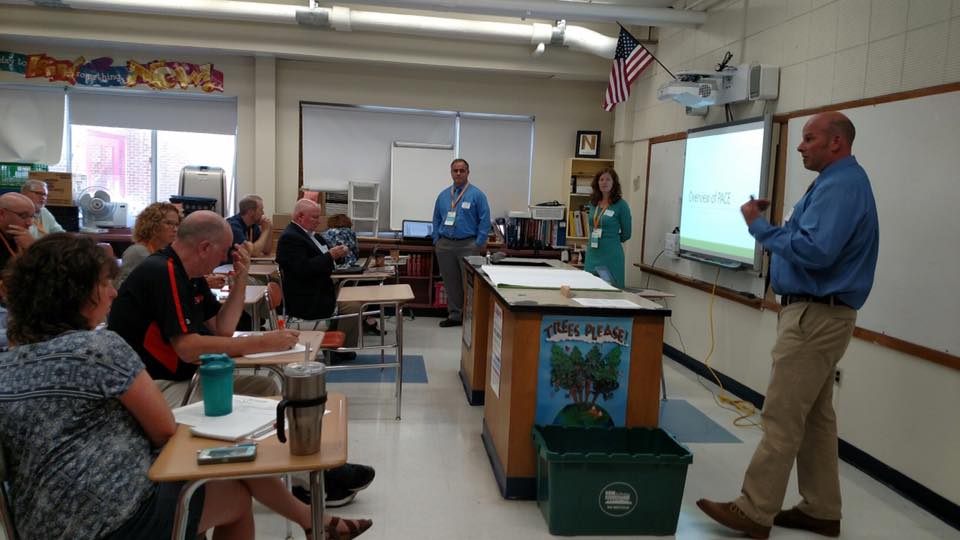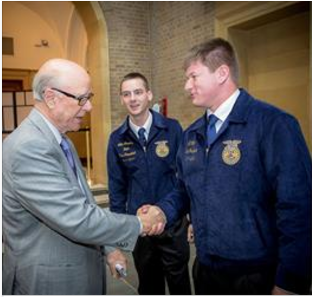
Industry and CTE Centers Partnerships Driving Innovation in NH
With employers across a variety of industries in the Granite State struggling to meet their hiring needs, Career and Technical Education (CTE) centers have become an increasingly important resource.
The capacity of CTE centers to develop the skilled workforce of tomorrow, however, has been significantly enhanced in the past two years through an innovative collaboration with the Sector Partnerships Initiative (SPI). An industry-driven statewide initiative to help businesses in targeted industries address workforce needs while helping workers prepare for—and advance in—their careers, SPI is initially focused on four industries: manufacturing, hospitality, healthcare, and information technology.
According to Phil Przybyszewski, Workforce Solutions Project Director, NH Sector Partnerships Initiative, each of the selected industry sectors are defined by several distinct characteristics and challenges:
Manufacturing
• 67,800 employees across 1,950 businesses (average = 35 employees)
• Relatively flat projected growth
• High churn rate caused by retirements; 30+% over age 55
• Strong hourly wage
• Top needs: CNC machinists, Machinery Mechanics, First Line Supervisors
Health Care
• 88,000 employees spread over 2,800 establishments (average = 31 employees)
• Growth projections 10% to 15% over the next five years
• Good wage rates at the top but quickly drop
• Top needs: Registered Nurses, LNA, MA
Technology
• 61,000 employees
• Grow rates approaching 12% over the next five years
• High hourly wage in the range of $37.00
• Top needs: Developers, Systems Analysts, User-Support Specialists
Hospitality
• 68,000 employees spread across 4,500 establishments (average = 15 employees)
• 70% of jobs are concentrated in food services and drinking establishments
• Younger workforce with 36% below age 25
• High turnover caused by lower wages and seasonal nature of employment
• Top needs: Better defined career pathways and training
“The SPI model is effective because it is problem rather than program oriented,” said Przybyszewski. “We are working with numerous partners to address real industry needs—no one needs to be working independently on their challenges.”
Nashua Technology Center
One of the ways in which SPI works is through dynamic collaborations either with industry leaders and/or CTE centers with scalable capacities. Led by Co-Director Marianne Dustin, Nashua Technology Center (NTC) represented a unique opportunity for SPI, which has helped to “rejuvenate” its Manufacturing program.
“It was hurting,” said Przybyszewski. “Enrollment was down, but there was enthusiasm around what was possible. There was potential.”
Noting SPI can assist CTE programs in several ways—funding or an infusion of new advisory board members, which took place in the NTC’s case represent two examples—he said its purpose is to better leverage existing capacities.
“This is a great example of tapping into SPI assets to make a difference,” he added. “Nashua had a great lab and great equipment—we adopted them as one of our initiatives within our manufacturing initiative.”
As for how SPI impacted NTC, Dustin noted their involvement helped create a meaningful pathway from Algebra into a career in Manufacturing.
“We are introducing AMPED, an Algebra curriculum that enables students to learn core concepts in Algebra through the lens of manufacturing processes, entrepreneurship and design,” she said.
In order to access the year-long curriculum, NTC sent an algebra instructor to a week-long conference in Colorado for training in implementation at the school. With the program launching this fall at full capacity with 36 students, Dustin said their relationship with SPI has helped them place an assortment of manufacturing and machining professionals as instructors.
“It’s a creative partnership that brings these professionals directly into the classroom,” she said. “Some programs have an Algebra and a Manufacturing instructor, but we can make this happen right now with just one instructor, which gives us some flexibility from a financial perspective. It is also a more effective way to teach students.”
As an example of the curriculum, she said it goes beyond the “Xs and Ys” generally associated with Algebra.
“Students will be presented with real-world problems where they will have the opportunity for hands-on learning,” she said. “Through the process of solving problems with real applications, the students will then back into the conceptual part of Algebra…Manufacturers are not working with X and Y. This program is a much more effective way to teach students skills and concepts at the same time.”
Looking ahead for SPI
According to Michael Power of the Office of Workforce Opportunity, NH Department of Business & Economic Affairs, SPI represents “a new way of doing business with the state’s employers.”
“Working with New Hampshire’s diverse industries by economic sectors is a more efficient and effective way of meeting the challenge of creating pipelines of employment opportunities for current and future workforce needs,” he said. “By involving employers in areas such as curriculum, career pathways and appropriate training, we can sustain and grow our workforce, our companies and our economy.”
Citing the partnership with NTC as one of several related projects supported by SPI, Przybyszewski said they are also beginning to look at a 5th sector in industry.
“We are in the exploratory stage of looking at Infrastructure,” he said. “This includes Construction, Broadband and Energy. We are completing our mapping of the assets associated with these sub sectors and will move to workforce planning next to identify key stakeholders to drive the initiative.”
To learn more about SPI, visit www.nhworks.org/Sector-Partnership-Initiative/Overview.



